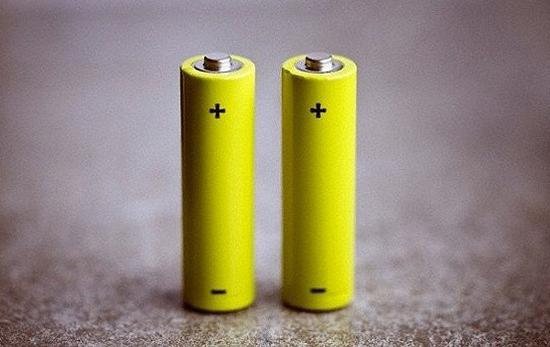Lithium Ion Batteries for Medical Devices – Safety and Medical
Feb 17, 2020 Pageview:1019
How does Lithium ion batteries used in medical applications?
Diminished, cross-functional devices are boosting an increasing need for cost-effective and reliable power management solutions utilizing lithium-ion batteries. Single-use devices and applications that need extraordinarily long battery life with no worries about the status of battery utilize Primary lithium batteries. Lithium-ion batteries are also good for lightweight, small and user-friendly designed devices. Specific type of lithium chemicals are also utilized in low temperature needed by the medical cold chain as well as in high temperature associated with airtight sterilization cycles.
In 1960s, primary lithium batteries were used in pacemakers, now it powers all kinds of medical devices such as glucose monitors, surgical saws, infusion pumps, automatic external defibrillators, bone growth stimulators, drills, robotic inspection systems, cauterizers, RFID asset tracking tags etc.
Many advanced medical devices of today also utilize lithium batteries because of higher amount of energy density and specific energy offered by them. All kind of lithium cells use a non-aqueous electrolyte and have minute open circuit volts ranging from 1.7V to 3.9V. Thus, using non-aqueous electrolytes turn into comparatively high internal impedance. An extended range of temperature is also offered by lithium chemistries made possible by the physical and chemical stability of the minerals and the absence of water. It is indicated by the cycle testing at various discharge and charge rates that the lithium batteries can work as an effective and safe source of power in medical devices. Lithium ion systems give further convenience to the patients who use the medical devices that are non-implantable and implantable.
What is the vital role of Lithium ion batteries in the medical device?
Medical device producers are frequently looking for producing lighter, smaller, reliable and human-friendly medical devices. There are different sizes in which lithium ion batteries are available. In the medical field, the smallest sized lithium batteries are used to power bioengineering devices. These devices are often inserted in human body helping doctors to monitor and maintain health.
Medtronic is one of the largest medical device companies in the world. Its name is listed in the list of medical device companies who produce their own batteries and use them in some of their neurostimulation and cardiac devices. Lithium ion batteries have a long life and high energy density that is why they are considered ideal for medical electrical equipment and medical devices. Lithium-ion batteries are open to overheating and can turn into a cause of fire explosion due to their high energy density. But whether lithium ion batteries are safe for medical devices or not depends on the species of lithium battery technology in use and the device. This means safety of medical devices that uses lithium ion batteries is a factor of intended application and environment of the device.
In sterile environments lithium battery packs are used such as in withstand sterilizations and in operating rooms. I have seen that device producers do a very common mistake while selecting a battery for the device and that is not choosing a battery having an internal resistance enough or suitable to the load. If the battery has high internal resistance and load current has high pulses or is simply high then potential difference drop can be serious or harsh. This will become the cause of two issues. Number one problem is that the heat up will occur in the battery and it wastes its energy. Number two issue is that it will immediately reach the cut off voltage of device very before than one can think.
How do you transport lithium ion batteries used in the medical device?
Lithium-ion batteries are open to overheating and can turn into a cause of fire explosion due to their high energy density hence we classified them as a good which is dangerous. Certain provisions must be met by them in order to be safely transported, provisions that are specified in global UN 38.3 standard. All areas in the transportation chain of lithium batteries are required to follow the standard from manufacturer to distributor, from sub-suppliers to end-product manufacturer; in the field; in or out of the product; within non-original packaging, or during product return. Medical industries need to be familiar with these standard and requirements because it’s essential as these batteries are widely spread for use.
Whether batteries are transported within a device or on their own UN 38.3 standard applies to batteries in either case. Competent authorities and regulators adopt this UN standard worldwide, so it has become a requirement for access to global or multiple markets. It has become a key component of the risky regulations and comprises of identifying lithium-ion batteries, testing and qualification requirements, design guidance, and packaging and shipping commitment.
After passing the testing requirements of UN 38.3 standard lithium ion batteries are allowed to be transported. From 1991 to 2016, around 138 airport and air incidents have been recorded by the U.S. Federal Aviation Administration (FAA) in which lithium batteries were involved. The number of incidents is increased since 2016 but all incidents are not recorded in the FAA. Most of the incidents were related to spare batteries, laptops, mobile phones and tablets and e-cigarettes.
Travellers are not allowed to take the lithium batteries in their checked baggage; they should carry them on board. The number of batteries is reminded to air travellers that they can take with them as spares or with a portable device. Placing each battery in a clear plastic bag is recommended by the airlines so that electric can be prevented from happening. Non-removable batteries within a device are exempt from the transportation protocols. These types of devices include mobile phones, electric watches and laptops but not devices that have removable or interchangeable batteries in it. Training is required in personnel transportation of lithium-ion batteries commercially. Passengers and shippers should know that batteries are not only the harmful item one could be carrying with them, this may be possible that passengers have some banned items in their luggage this will also cause the safety of other travellers in danger.
- Prev Article: How to Test Lithium Ion Battery Capacity-Testing and Care
- Next Article: High Temperature Lithium Battery-Effect and Protection
Leave Message
Hottest Categories
-
Hottest Industry News
-
Latest Industry News














